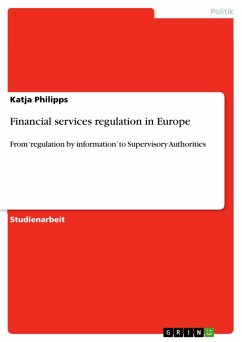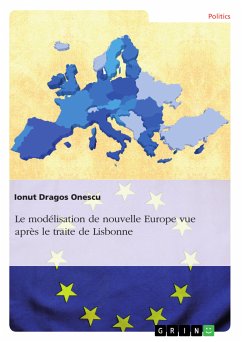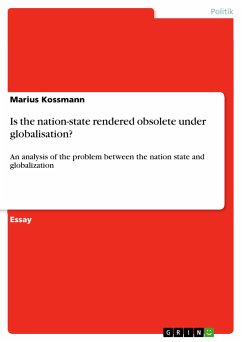Studienarbeit aus dem Jahr 2012 im Fachbereich Politik - Thema: Europäische Union, University of Twente , Sprache: Deutsch, Abstract: Since the foundation of the European Union in 1992, the claim of a 'rising regulatory state' in Western Europe has become an important feature of public policy research. The creation of a single market by the Treaty of Maastricht forced European governments to change their traditional modes of governance in response to developments like increasing international competition and deepening economic and monetary integration within the European Union. Strategic adaptation to these new realities has been linked to two key trends: one is the reduced role for the positive, interventionist state and a corresponding increase in the role of the regulatory state, using legal authority over the tools of taxing and spending. The second trend is the European Commission's ambitious attempts to maximise its influence over policy content, and the increased interest of member states in transnational policy responses to the issues arising from the Single European Market. One of the main institutional features of this 'rising regulatory state' has been the creation of European regulatory agencies with the primary aim to provide policy-makers with objective and independent information. An interesting but also controversial feature of this development is the fact that governments were apparently willing to abandon some of their regulatory competencies in favour of institutions that are not democratically accountable, and that are to a large extent insulated from political influence. The relevance of this topic becomes accessible when looking at the developments in fi-nancial services regulation between 1999 and 2011. The eruption of the financial crisis in 2007 significantly changed the institutional architecture of regulation at the European level and led to the creation of a new European financial supervisory framework, centred around three supervisory authorities with defined legal powers. The aim of this paper is to outline these developments and to put them into an explanatory theoretical context. How can the development from regulatory agencies with only an auxiliary role in the process of European policy-making to supervisory authorities with defined legal powers be explained? Even more important, is there really a qualitative leap from one regulatory body to the other?
Dieser Download kann aus rechtlichen Gründen nur mit Rechnungsadresse in A, B, BG, CY, CZ, D, DK, EW, E, FIN, F, GR, HR, H, IRL, I, LT, L, LR, M, NL, PL, P, R, S, SLO, SK ausgeliefert werden.









